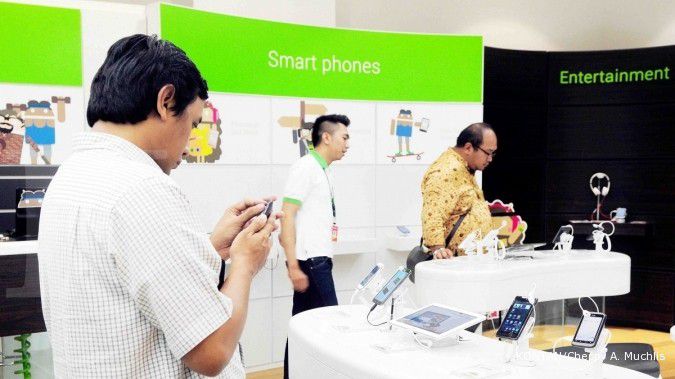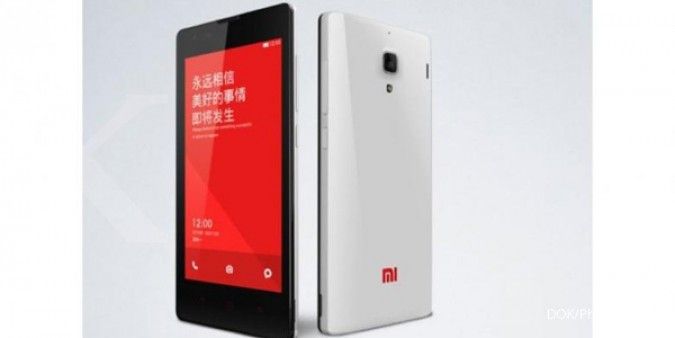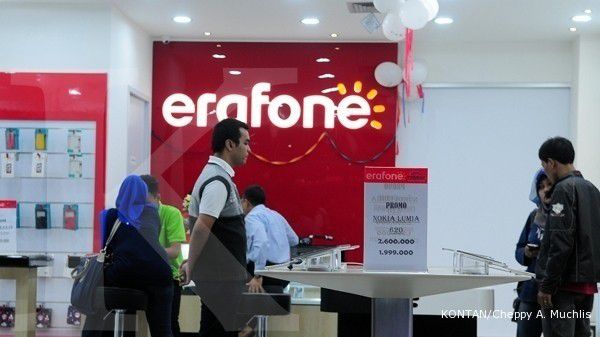BATAM. Publicly listed cell phone distributor and retailer PT Erajaya Swasembada has officially commenced production of its own cell phones in Batam, Riau Islands, on Friday, after higher costs in China prompted the company to relocate.
Erajaya Swasembada will produce 150,000 Venera 138 cell phones in a new Batam facility by the first quarter of next year through publicly listed PT Sat Nusapersada, a giant electronics manufacturer in the Batam special economic zone, according to Erajaya Group CEO Hasan Aula.
Venera 138 is a feature phone with a selling price of about Rp 150,000 (US$12.36) per unit. Feature phones control the domestic market with a share of 60 percent of sales, but their cheaper prices compared with smartphones mean they account for just 20 percent of the market in terms of value.
“From the business aspect, the costs are cheaper [in Batam] than when we produce in China,” Hasan told The Jakarta Post. “There are savings costs […] such as the 10 percent value-added tax that is scrapped when we import components into Batam, but it is paid later when the cell phones are shipped into Jakarta. The time difference could be used to temporarily keep funds.”
The decision to produce cell phones in Batam, Hasan added, was also due to the government’s support for mobile phone distributors to assemble their products in Indonesia.
“Out of the hundreds of domestic cell phone distributors, excluding Erajaya, only eight companies had planned to produce locally. The government has decided on a deadline of 2015, otherwise their licenses will be revoked,” said Ignatius Warsito, a director for the electronic and telematics industry at the Industry Ministry.
Sat Nusapersada president director Abidin said that producing cell phones in special economic zones such as Batam could reduce income tax to 2.5 percent from 5 percent on phones produced outside special economic zones.
“To boost cell phone manufacturing in Batam, we have asked the government to limit the cell phone import quota. Right now, cell phone imports ranked second after gas imports, and this is not good,” he added.
As of August, 34 million cell phones were imported through Batam, with a total value of $2.1 billion. If the import quota is capped and production is diverted to domestic electronic manufacturing industries, the multiplier effect would be bigger, according to Abidin.
“If the government limits imports, domestic [production] could be beneficial to absorb labor. Our funds would not flee overseas. We would also have less dependence on overseas products. The government should also incentivize domestic cell phone production through tax incentives,” Abidin said.
Shares in Erajaya traded at Rp 1,075 on Friday, down 2.27 percent from the previous trading day. Erajaya’s stocks have risen 7.5 percent so far this year, underperforming the broader Jakarta Composite Index’s (JCI) 16.7 percent gain. (Fadli)
Erajaya relocates production from China to Batam
November 10, 2014, 11.24 AM
/2014/09/01/556294671p.jpg)
ILUSTRASI. Manfaat daun basil adalah kaya akan kandungan vitamin A, vitamin K, zat besi, mangan, kalsium, dan minyak esensial.
Source: The Jakarta Post
| Editor: Hendra Gunawan
Latest News
-
February 08, 2026, 02.30 PM
South Korean Crypto Firm Accidentally Sends US$44 Billion in Bitcoins to Users
-
February 07, 2026, 05.13 PM
Indonesia-Australia Relations: Booming Business, Golden Opportunities for Investors
-
February 07, 2026, 04.59 PM
Indonesian Comedian Summoned by Police Over Netflix Show
-
February 07, 2026, 05.57 AM
GLOBAL MARKETS-Stocks, Bitcoin Rally, Regaining Some Lost Ground with Precious Metals
-
February 06, 2026, 07.58 AM
Indonesian Markets Face More Pressure after Moody's Cuts Outlook
-
February 05, 2026, 07.19 PM
Moody's Cuts Indonesia's Sovereign Rating Outlook to Negative
-
February 05, 2026, 02.43 PM
Indonesia Posts Fastest Economic Growth Rate in Three Years
-
February 04, 2026, 04.38 PM
Indonesia's Tax Revenues Jump in January, Finance Minister Says
-
February 04, 2026, 03.34 PM
AUD 1.6 Trillion Australian Pension Funds Ready to Pour into Indonesia













